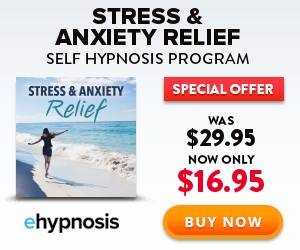
Do you ever feel stressed out and anxious at times? Maybe you experience an impact on your mental and physical health because of this?
You aren’t alone, many people go through this at some point in their lives. There are dozens of common triggers, ranging from pressures at work to troubles in romantic relationships, financial struggles, and tricky family dynamics. And if you're not well-versed in how stress has an impact on you, it can do an enormous amount of damage before you ever realize what is happening.
Whether you’re coping with anxiety issues, chronic stress or both, this guide can help you understand what’s happening to you and what you can do next. We will explore the major symptoms (both mental and physical), canvass a range of the best coping strategies, and help you see how you can effectively apply these techniques to your everyday life.
Recognizing Signs of Stress
You may struggle to admit to being stressed, even to yourself. You might worry that it makes you weak, or shows that you can't handle the stresses attached to your ambitions. If you desperately want to be strong and capable, you might suppress all thoughts of stress until you eventually crack under the strain. Men, in particular, may have received negative messages suggesting that it’s not acceptable to be upset or afraid.
In truth, everyone suffers from stress, and it says nothing about your worth, value or bravery as a person. Meanwhile, even if you are willing to accept the idea of being stressed, you might have an excessively narrow conception of what it looks like and may end up discounting your own symptoms.
For example, you may assume that all cases of "real" stress involve constant crying or a total loss of functionality, or you might think that stress is only a problem if it occurs at the same time as a clearly defined mental health issue like depression. That's why it's vital to have a rough idea of how symptoms of stress really present themselves.
Of course, everyone processes stress differently, but the physiological changes (e.g. raised levels of hormones like cortisol) mean that there is a common profile that roughly fits the experiences of most people.
Feeling Stressed Out
First, let's look at the characteristic, emotional experiences associated with high stress. Whether you notice just a few of these symptoms or are able to tick every box, don't discount signs of stress.
Remember, the number of symptoms that you exhibit doesn't indicate anything about the severity of your situation--someone may be slightly stressed and notice ten of these signs, while someone else may be extremely stressed in a way that causes just a few of these symptoms (at a high level of intensity).
- Irritability and a shortened fuse
- Feeling overwhelmed, even when asked to do simple tasks
- Reduced interest in socializing, either because you're anxious or because it feels "too much"
- Feeling afraid or experiencing a general sense of impending doom
- Racing thoughts
- Feeling like everything is a problem
- Generally low mood Inability to relax, even during time off
- Feeling disconnected from friends and loved ones
- Low self-esteem and reduced confidence in your abilities
- Feeling like bad things always happen to you
- Anxiety about your health
- Feeling numb, like nothing really touches you
- Reduced sense of humor
- Loneliness and a sense that no one really understands you
- Losing interest in things you used to enjoy
- Questioning whether life is worthwhile
Physical Signs of Stress
As briefly referenced above, stress hormones can cause a wide range of physical symptoms. These include (but are not limited to) the following:
- Breathing too fast or too shallow
- Having a panic attack (or feeling like one is likely)
- Chronic headaches
- Widespread muscle tension (especially in the neck, shoulders, and jaw)
- Sore, tired or gritty eyes
- Difficulty falling or staying asleep
- Nausea
- Irregular bowel movements (this may be diarrhea, constipation or both)
- Increased blood pressure readings
- Falling asleep unintentionally (e.g. at work)
- Frequent and intense nightmares
- Reduced sex drive or reduced responsiveness to sexual pleasure
- Exhaustion
- Sweating
- Bruxism (i.e. grinding your teeth)
- Dizziness
- Gastrointestinal discomfort (e.g. indigestion)
- Pain in your chest
- Fainting episodes
It is important to note that while all of the above can be caused by stress, you should always get such physical symptoms assessed by your doctor in order to figure out whether there are any underlying conditions involved.
Even if you know your life is particularly stressful, this isn't a guarantee that your physical problems are caused by stress--for example, sometimes stress causes certain health problems to get worse. In particular, if you have chest pains, fainting episodes or new types of headaches, it is vital to seek medical advice as soon as possible.
Changes in Behavior
When talking about recognizing signs of stress, it's helpful not only to think about your thoughts and feelings but also about how you act. Some people only realize how stressed they are when they take stock of just how different they must seem from the outside. In particular, your behavior may exhibit the following changes:
- Avoiding decision-making (by procrastinating, or by outsourcing responsibility to others)
- Acting as though every situation involves high stakes
- Losing your temper or being short with people
- Chewing your nails
- Ripping at the skin on your fingers
- Crying more often
- Not listening to people properly
- Restless bodily movements (e.g. moving your legs)
- Failing to concentrate for more than a few minutes at a time
- Avoiding people, places, and obligations that worry you
- Different eating habits (either overeating or undereating)
- Drinking alcohol to excess, or more often than usual
- Smoking more than usual
- Taking drugs (whether legal or illegal) to control your emotions
Usually, stress impacts our behavior in one of two ways. You might withdraw into yourself, away from people and potential sources of anxiety.
Alternatively, you might become much more reckless, which at first, looks like increased sociability (but actually indicates underlying self-destructive tendencies).

Tracking Stress Triggers
Some people know what stresses them out, but you may be surprised by how many stressors can go under your radar. This is especially true for people who find it difficult to accept being stressed, but it can apply to all of us—we all have so many things to juggle that our self-knowledge can easily begin to suffer in response.
That’s why it’s worth taking the time to properly track your triggers. You can do this in a notepad or on your smartphone, but the goal is to jot down instances of the above physical, emotional and behavioral symptoms and write down what’s happening at the time.
If it helps, grade each instance according to its severity. After a few weeks, you should see clear patterns emerging, and you’ll have a much better sense of what bothers you the most (and in what ways).
In many cases, you may be surprised by what actually makes you feel powerless or panicked, and it can lead to a breakthrough in understanding your underlying needs.
Stress Relief Techniques to Try Yourself
Now that you have a better idea of what stress might look like in different situations, it's time to consider how to best get it under control.
Firstly, it's worth noting that a healthier lifestyle generally helps. For example, many people find they derive huge benefits from eating healthy to reduce stress, others incorporate exercise as a major part of stress management, and yet more benefit from more strictly regulating their sleep cycles.
So, taking a critical look at your diet, sleep patterns and levels of physical activity can help you design a new routine that supports confidence and resilience. In addition, stress can sometimes be an indicator that you're in the wrong job or the wrong relationship--a reminder that you aren't following the best path for you.
This means that any period of stress should also prompt self-reflection and serious consideration of whether you need to make significant changes. However, in what follows we'll assume that you are (for the most part) satisfied with the general shape of your life, and consider how you can handle spikes of excessive stress against that background.
We'll be focusing on a range of the most successful psychological strategies, concentrating on how to influence your thoughts and feelings around stressful issues. Throughout, consider how you could add each one of these strategies to your life, and try to anticipate the types of blocks that might get in the way.
Stress Balls and Toys
One of the most popular stress management tips involves using physical objects to both refocus your attention and get some of your stress out of your system in a satisfying way.
The classic item is a stress ball, which you can hold in your hand and rhythmically squeeze any time you feel overwhelmed. The thought is that this helps to ground you in the present moment, and also gives you something productive to do (rather than, say, giving in to the urge to throw or break something).
More recently, fidget spinners have become particularly popular, and these may be of special use to you if you have a lot of nervous energy when you're stressed.
These small toys have a ball bearing in the middle of 2-4 flat surfaces that spin smoothly in response to your touch. Some people also find that fidget spinners help with focus, and reduced focus is a common side-effect of stress.
Meditation and Deep Breathing for Stress
Meditation is an excellent weapon in your arsenal when you're battling stress, as it helps you to calm anxiety at both a physical and mental level. At the beginner's level, many meditation techniques that focus on learning how to reduce stress only require you to repeat a deep breathing pattern.
So, even if you have never meditated before, spending five minutes breathing in through your nose and out through your mouth can do a lot to soothe your overwrought nervous system.
There are lots of pre-recorded mindfulness and meditation sessions that you can follow, which is extremely useful if you're easily distracted. In time, it gets easier to focus solely on your breathing for progressively longer periods, and it will become something you can do without any assistance.
In addition, think about how you can improve your meditation sessions by increasing your comfort. It can be worth creating a dedicated meditation area with a comfortable chair and soft furnishings, and you can also design a meditation soundtrack.
Some people enjoy nature sounds (e.g. the ocean, or whale songs). Furthermore, using scents that calm and relax you can help you to get into the right frame of mind for meditation, and can also create a positive association (meaning that any time you smell these scents in the future, you should feel at least a little calmer). The best calming scents include lavender, aloe, rosemary, and jasmine.

Stress Relief Hypnosis
Some people turn to drugs (whether prescribed or over-the-counter) to deal with stress, but in many cases, it is more effective and far healthier to opt for a form of hypnotherapy.
You may feel nervous about going to see someone, but you do not need to a see a therapist in person in order to undergo a hypnosis session--records are accessible through online downloads, allowing you to use them in the comfort of your own home.
You can even have them on your phone, allowing you to take time out to use them if you feel overwhelmed at work or during travel. Certain downloadable hypnotherapy recordings can also be listened to at any time, and this can play a major role in improving your sleep if you choose to do a session before you go to bed.
When you engage in self-hypnosis, you will be shut off from the noise of the outside world, and many people report a deep, truly restful sleep after listening.
If you're anxious about the idea of hypnosis, rest assured that there's nothing supernatural about it, and it isn't possible for you to accept things you wouldn't endorse in a conscious state.
Essentially, you simply enter into a highly receptive, relaxed mode of being, and your subconscious mind takes on suggestions that already fit with your preexisting goals and desires. Through stress relief hypnosis, you can, in time, “reprogram” your stress response to a degree, whether it is chronic or related to particular fears and phobias.
This makes hypnotherapy a good investment, as the more sessions you do, the better your subconscious becomes at dealing with previous triggers for stress and anxiety.
And, as a bonus, it's worth noting that stress relief hypnosis is surprisingly inexpensive, especially when you consider the high level of client satisfaction associated with hypnotherapy.
Talking to People and Counselling
When working out how to deal with stress and depression, it’s essential that you don’t try to face your difficulties alone. While you do need to be careful to choose people you trust to keep your personal information a secret, unburdening to a friend or family member can help you make sense of what's happening to you.
Just verbalizing your feelings can make them seem more manageable, and being met with empathy has huge healing power. It can also give you a much-needed opportunity to hear advice, especially if you're talking to someone who has already faced the same issues.
Meanwhile, if you don't feel comfortable talking to anyone in your everyday life, speaking to a therapist can make a huge difference as well.
You don't need to worry about "burdening" a therapist, and everything you say will be kept confidential (unless there's a perceived risk of harm to you or someone else). If you do want to have counseling sessions, you should feel free to try out a range of therapists until you find a good fit.
Counselors are used to this, and all the latest research indicates that the quality of the client-therapist relationship plays the biggest role in whether the sessions facilitate progress.
Set Achievable Personal Goals
No matter which aspects of your life tend to involve the most stress, a general boost in your organizational skills empowers you and makes you feel more in control of everything. One of the best ways to become more organized is to set clearly defined goals and to split larger goals into smaller subsets.
So, for example, you might have the broad goal of finding a new job. You can then split this up into smaller targets to achieve, such as rejuvenating your CV, soliciting a further reference letter, attending a networking event and so on.
The smaller the goals, the more achievable and less stressful they feel. What used to cause you to procrastinate and feel anxious will become a bite-sized task that only takes up a day (or a bit of a day).
Before you know it, you’ll have achieved a wide range of these goals and you’ll be well on the road to achieving your larger dream.
Try to Stay Positive
When stress levels are high, staying positive is a major challenge. You'll be tempted to do the exact opposite much of the time, focusing on the worst possible outcomes. This means that positivity requires consistent effort, even if that feels artificial at first.
For example, you can try carving out a specific period of the day for looking at, reading or watching things that make you laugh. Smiling and laughing is good for you, both physically and mentally.
Equally important is finding the good in the world around you, identifying reasons to value and enjoy life. When you're able to do this, you develop a more balanced view of the world and it no longer looks like a purely hostile, dangerous place that is out to harm you.
Some people benefit from keeping daily gratitude lists of the things that moved them, and making such a list at night can help you go to sleep in a better state of mind. In addition, whenever possible, try to find a silver lining to the stress you're going through.
Whether it provides an opportunity for growth, helps you form new relationships or brings you closer to a lifelong goal, you'll find there's almost always something there to appreciate.
What is the Best Stress Relief?
So, having provided an overview of how stress presents itself and what you can do in order to deal with it, how should you decide on a particular approach to stress relief? It seems smart to incorporate a deliberate combination of a range of the techniques and changes mentioned above, as they naturally complement each other.
In particular, they are all about positive change, about caring for yourself, and about learning to identify triggers for anxiety and stress so that you can act on them before you become overwhelmed.
Talking about your problems, distracting yourself from negative spirals and learning how to shift your focus can all make stress so much easier to handle.
However, if you're only going to do one thing discussed in the list above, the evidence most strongly favors practicing meditation or engaging in hypnosis. Both of these approaches allow you to give your brain a proper rest and also teach the subconscious part of your mind to respond to stress in new, more productive ways.
Self-hypnosis for stress is especially good for this, as it allows you to internalize messages that directly relate to stress, and it can have a direct impact on common physical symptoms like panic attacks, insomnia, and restlessness.
It can also be easier to start hypnosis than to begin meditation, as hypnosis leads you directly into a receptive state. Many hypnotherapists use deep breathing and mindfulness practices as part of their sessions, too, so it's possible to benefit from both meditation techniques and hypnosis at the same time.
No matter what you're going through, try to take strength in your proven resilience. If you look at your history, you'll see that you've already overcome so much. You are capable of more than you know, and you will continue to meet life's challenges as they come. You are not alone.



